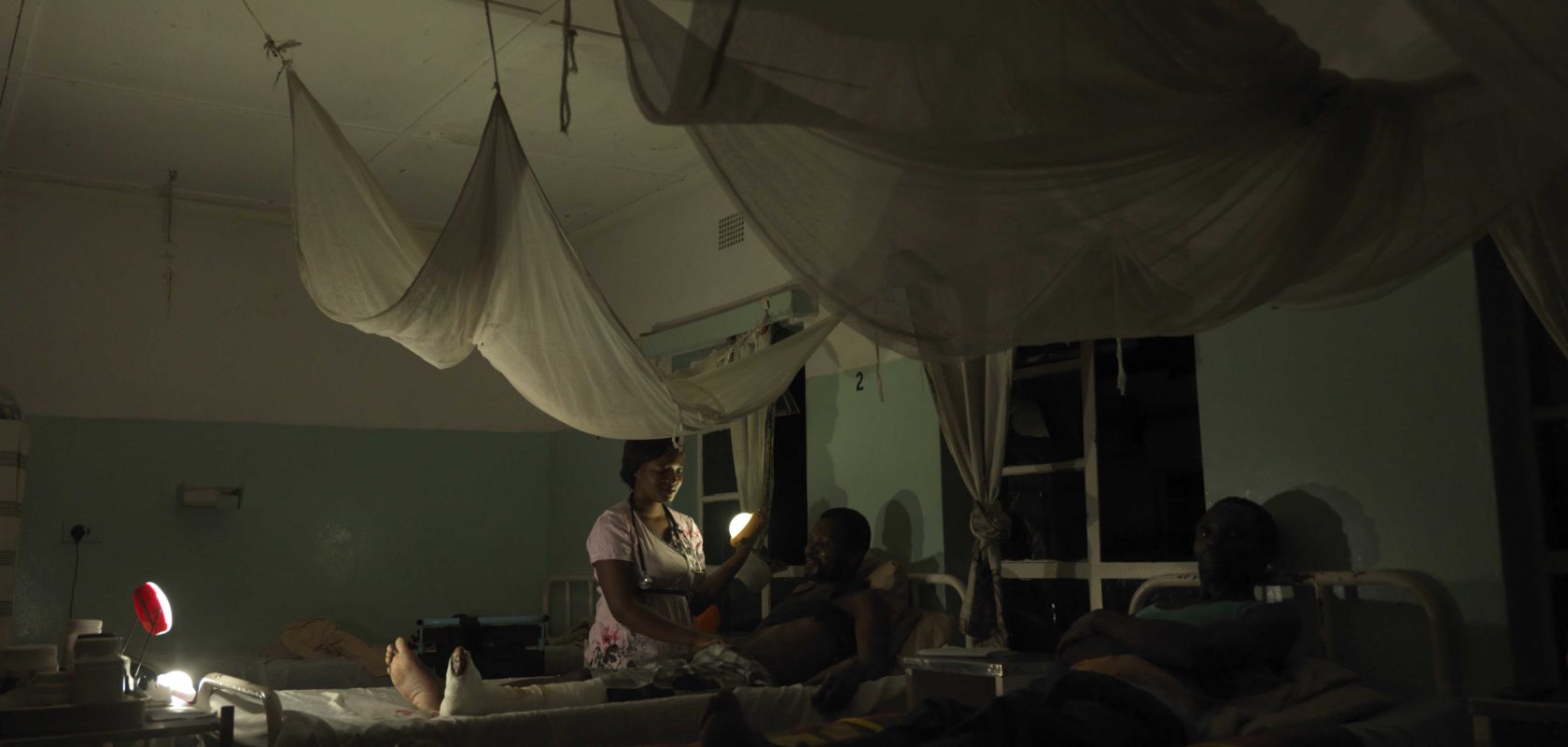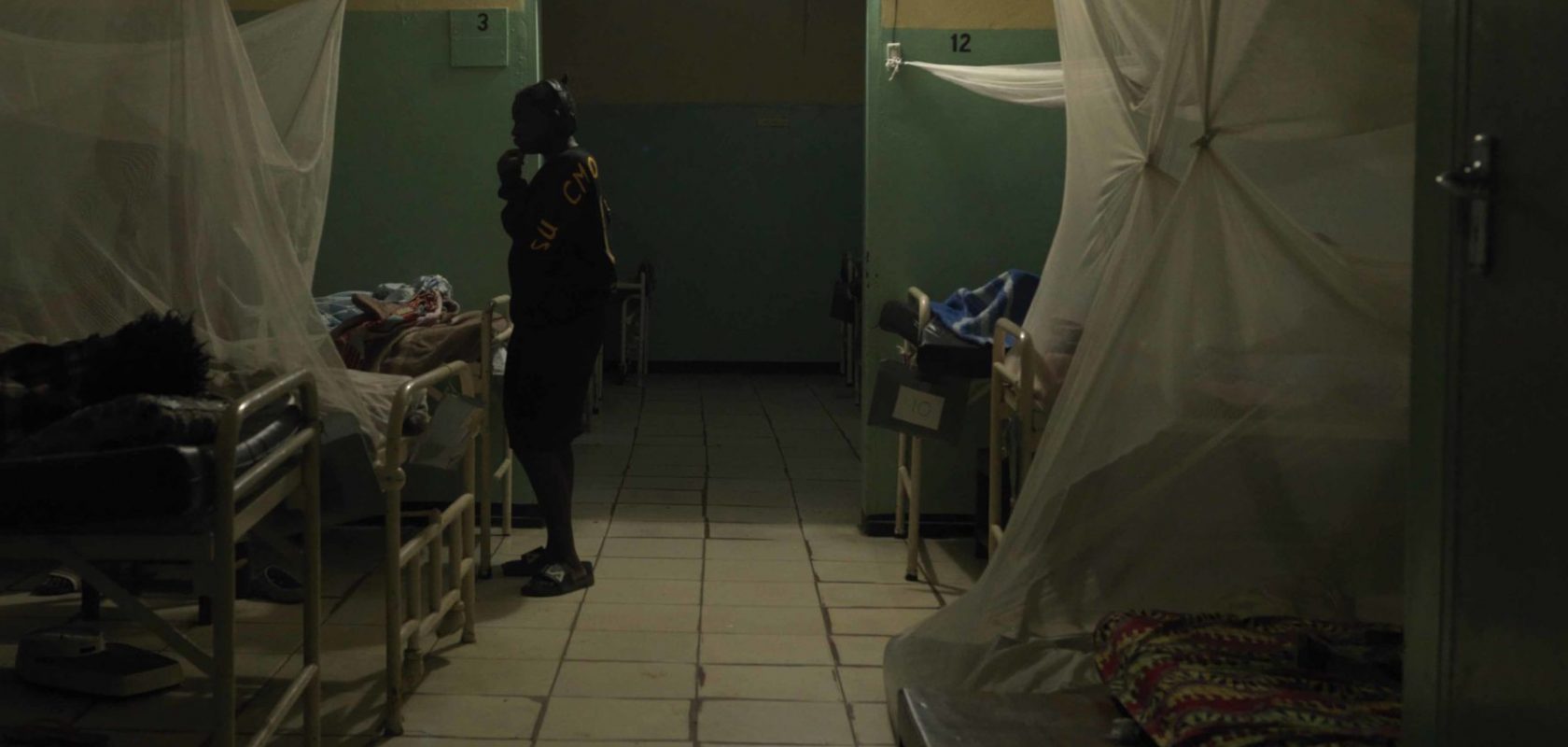St Luke’s Hospital is located in Eastern Zambia. It’s a rural part of the country, and a small dirt road leads up to the hospital building. It’s a place full of action, but as the sun sets, it gets quiet. And dark.
Similar to the majority of rural health facilities in Zambia, St. Luke’s Hospital is not connected to the national grid. Here, the doctors and nurses use a generator until 10pm, and then at night time, they are relying on solar lights.
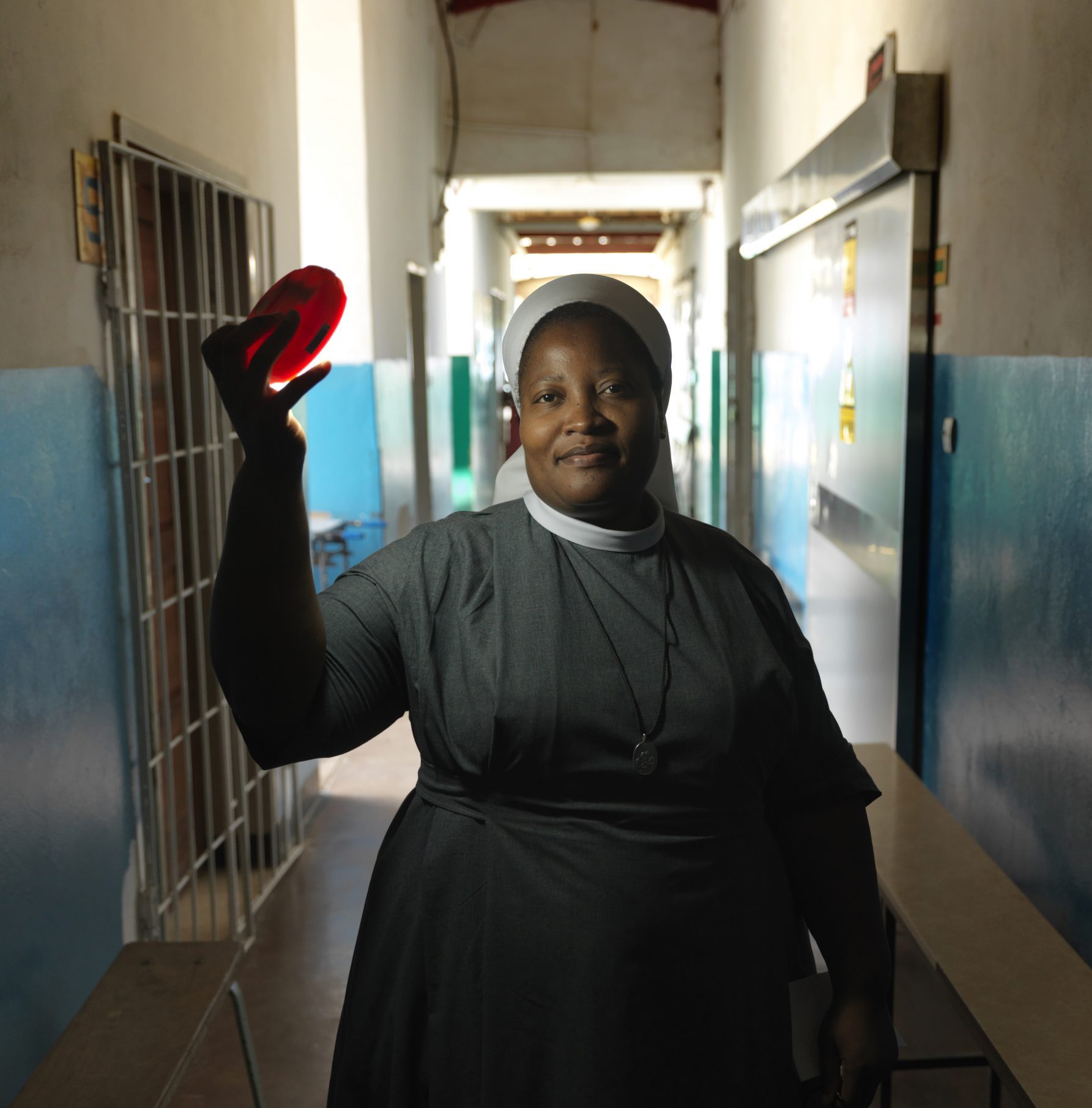
Portrait of Sister Martha at St Lukes Hospital.
Sister Martha has worked at St. Luke’s hospital in rural Zambia for 16 years. It was 7 years ago that the hospital got access to solar lights, but Sister Martha remembers a time before that.
“It was very difficult. During night the hospital depended on our reserves of petrol for our small generators. If an emergency came in during the night, only then we would use some of the petrol to have some light. Only during emergencies.”
Petrol in the area is scarce, there is not always a guarantee that there will be petrol available at the petrol station. The solar lights, however, are charging in the sunshine during the day ready to light up the dark hospital corridors during night, giving the staff confidence to carry out sometimes life threatening procedures.
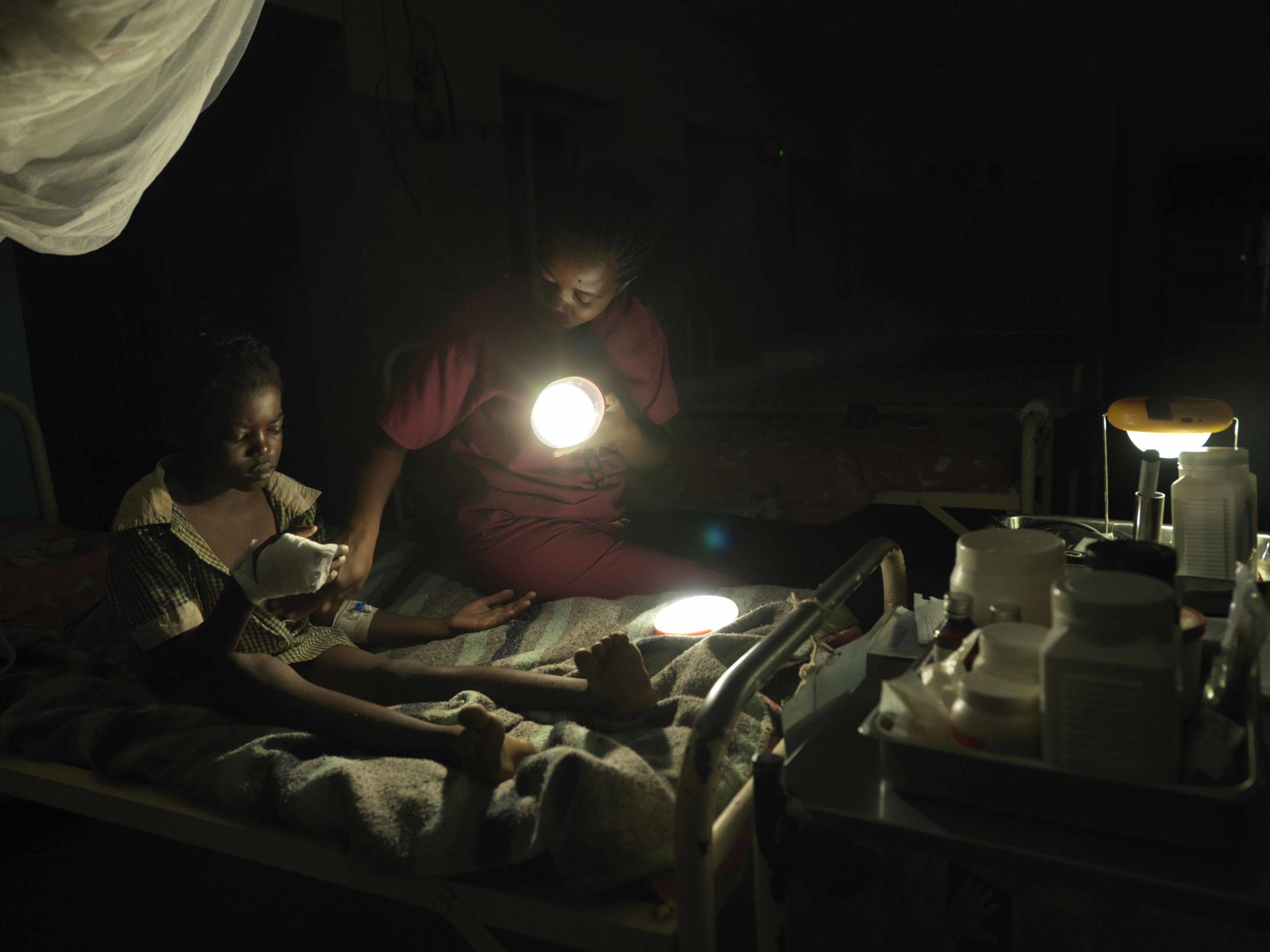
Nurse Annie Zulu is able to monitor the progress of Bridget in the night. Bridget Mbewe had her finger removed after a Black Mamba snake bit her finger.
This particular night, an emergency case comes in, it’s the girl Bridget Mbewe who had to have her finger removed after being bitten by a Black Mamba snake. This is part of the reality for families living without access to light, when the sun sets, it get’s pitch black, and it is difficult to see what could be hiding in your own home. With the help of solar lights, Nurse Annie Zulu is able to monitor the progress of Bridget this night.
At the same time Joseph Ngusa is working the maternity ward. In Zambia, it is not uncommon for mothers to have to give birth in the dark. At many clinics, the staff ask the patient to bring their own candle when they come in. This night, Joseph is able to use a solar light.
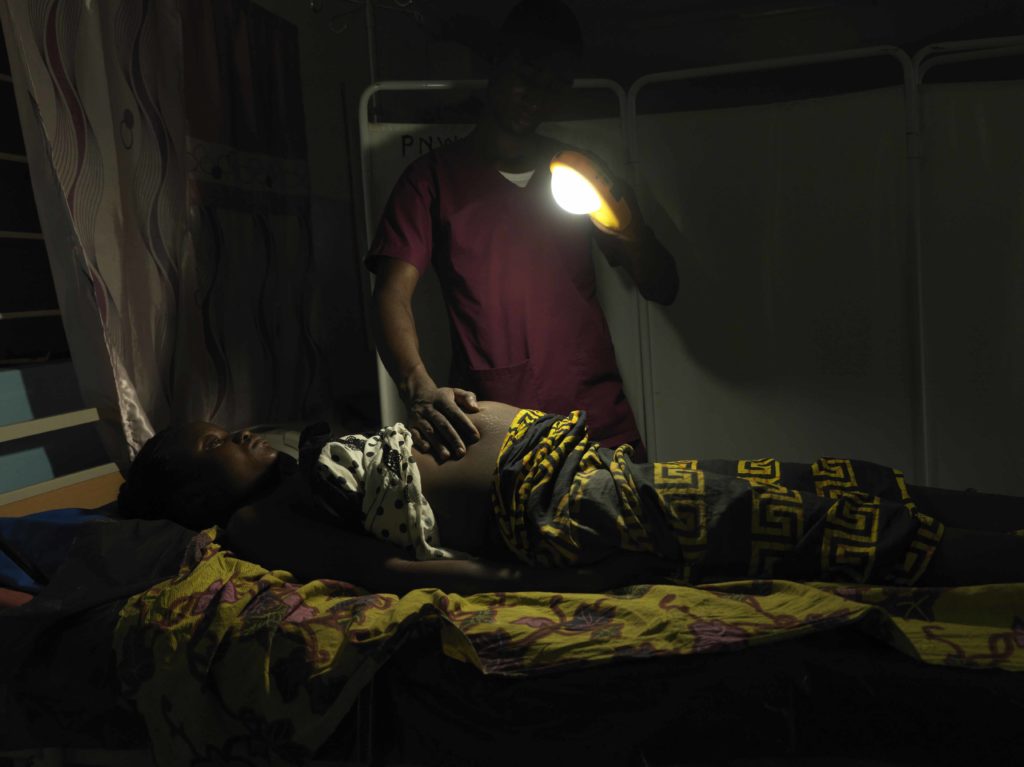
Jospeh Ngusa is a nurse at St Lukes Hospital. In their maternity ward, solar lights are vital for maternal health.
Also Sister Martha has noticed the difference, “The doctors and nurses, with the light they can trust their skills. Before, there was darkness. There is light now, and the sun shines for us, for the people, for everybody.”
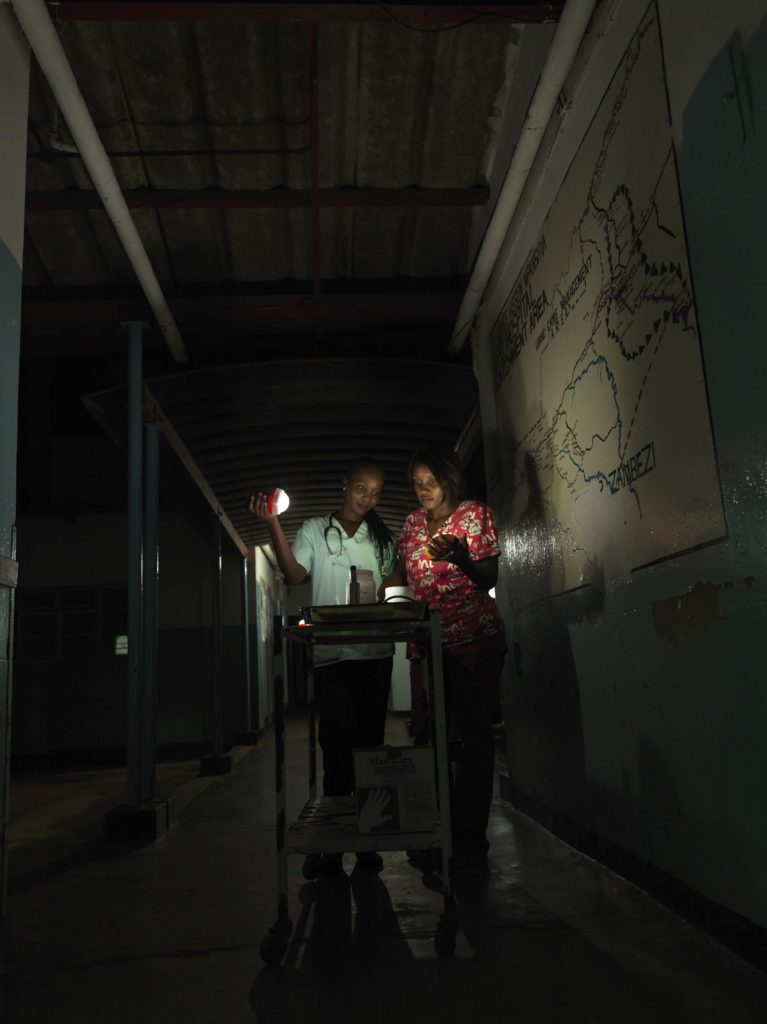
Nurses Mwansa Musonda and Ruth Mzumara using solar lamps on their evening rounds at St Lukes hospital, Zambia.
“When the patients leave, they feel happy and spread the word of sun power in their homes and villages”, explains Sister Martha.
Access to light is vital for health workers to be able to treat patients safely. SolarAid is working together with partners to bring clean, safe light to health facilities in rural Zambia and Malawi.
No clinic should be left in the dark.
